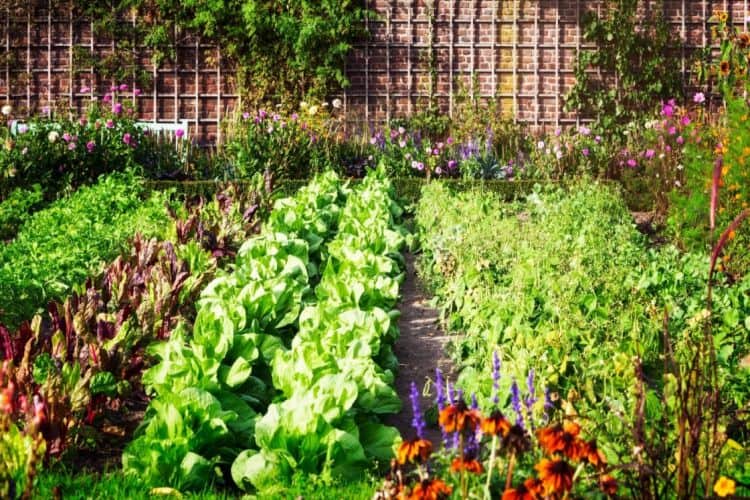 Starting a farm business is a challenging task. Success takes a lot of hard work, dedication, and planning. But with the right tools and resources at your disposal, you can make it happen.
Starting a farm business is a challenging task. Success takes a lot of hard work, dedication, and planning. But with the right tools and resources at your disposal, you can make it happen.
This guide will provide all the information on what plants are best for the farming business. We will discuss what types of plants work best in different climates and soils, how to care for them, and provide tips on getting the most out of your crops. The following are the nine crops best for farming business.
- Plantains. Plantains are a multi-purpose, hardy crop that can be grown in many climates, making them an ideal addition to your farm business. Not only are they relatively easy to grow and maintain, but their uses are also varied. Additionally, plantain species have medicinal uses in many cultures worldwide, meaning there’s great potential for you to generate income from supplying this versatile crop to local and international markets. With demand on the rise, now’s the time to consider adding plantains to your farm business!
- Corns. Considering starting a farm business or adding to your existing operations, consider investing in quality corn products. Corn provides essential nutrients for livestock and can be used in various production processes, including hay and ethanol. With the health benefits associated with a diet that includes corn-based products, there is substantial demand for corn crops from consumers and companies looking to expand their offerings.
- Sweet Potatoes. Sweet potatoes are a highly profitable crop that you can plant in your farm business. It’s important to understand environmental factors such as soil quality and regional disease pressures before starting to grow sweet potatoes; however, once you’ve taken these precautions, the rest of the process is relatively straightforward. As a drought-tolerant crop that handles hot climates well, sweet potatoes are an excellent alternative for locations with dry spells and warm temperatures.
- Cassava. Cassava is one of the most versatile and vital crops for farmers worldwide. It is an essential component of food security in many areas, and its uses range from energy to nutrition. Its ability to produce high yields on poor soils makes it an excellent choice for many farmers looking to maximize their land use efficiently.
- Potatoes. Potatoes are one of the most profitable crops you can grow for your farm business. A single 100-square-foot plot of potatoes can yield multiple pounds of this starchy root crop, providing a great return on your investment and saving you money versus buying potatoes from the store or wholesaler. Boil, mash or fry them; regardless of how they’re prepared, potatoes remain a staple food around the globe, providing reliable nutrition and income to farmers who embrace them.
- Rice. Growing rice is a great idea for an agricultural business as it requires little investment and labor, yet has the potential to generate significant profits. It also has low water requirements with its successful cultivation depending on irrigation. To optimize profitability, it is important to ensure a suitable variety of seeds is planted and quality inputs such as fertilizers and insecticides are used appropriately.
- Wheat. Wheat has a shorter growing season than those other crops, meaning you can harvest the grain twice per year if you have a suitable climate. That quick turnaround time could make your investment go much further by bringing in double the proceeds with half of the wait time. Furthermore, fertilizers used to grow wheat are much less expensive than what’s typically required for other grains, meaning you can yield a great crop without breaking the bank on supplies and resources.
- Yams. Yams have higher yields than potatoes, typically require less maintenance, and provide stronger resistance to pests and diseases. Furthermore, the fleshy root structure means that the tubers from the harvest can often survive in storage for months at a time – making it easier to plan and manage resources accordingly. With minimal effort and cost, yams could be just what your farm business needs to succeed.
- Lavender. Growing and selling lavender is becoming an increasingly popular choice for small businesses. Lavender is relatively easy to cultivate, produces up to five harvests per season, and appeals to diverse customers. Not only can it be dried and used naturally, but its oil also has many culinary, aromatherapy, and medicinal applications. Additionally, many local businesses choose to specialize in lavender products such as bath scrubs or essential oils that have the potential as gift items or tourist souvenirs on a larger scale. Lavender farming takes dedication, but with the proper knowledge and preparation, it can be a valuable option for entrepreneurs looking to diversify their crops or create unique products from the land.
Growing crops for a farm business can be extremely rewarding and profitable. However, many important things must be considered to ensure success. Darwin Farm Work is an ideal way to start building your crop-growing knowledge. This reliable service provides the guidance needed to understand the basics of crop planting and cultivation and the tools you need to succeed.


